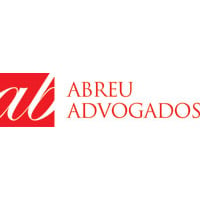

Partner | Allen & Overy






Tim Scales
Partner | Allen & Overy
Based in: London
Number of years practice: 25
Principal practice areas: Project development and finance – energy, infrastructure, natural resources
Languages spoken: English, French, German
What is the geographical focus of your practice in Africa?
Pan-African practice.
Please describe the most important matters you have worked on in the African market in the last two years, including your role and the significance of the matter (if any) to the development of business and law.
Guinea Alumina Corporation – advising the development finance institutions, multilaterals, commercial banks and The Multilateral Investment Guarantee Agency (MIGA) on the development and financing of Emirates Global Aluminium’s bauxite mine and associated infrastructure.
Lekki deep sea port – Nigeria. Advising Tolaram Group and China Harbour on the development and financing of this significant investment which will create a major new hub for import/export in Nigeria.
Kigali water project – advising The African Development Bank (AfDB) and Emerging Africa Infrastructure Fund (EAIF) on the financing of Metito’s water project in Kigali, Rwanda. [This is] the first bulk surface water supply public-private partnership project in sub-Saharan Africa, which will produce 40 million litres of fresh and clean water a day – 40% of Kigali’s potable water requirements.
Advising SN Power on the acquisition of the Bujugali hydropower project in Uganda – a major secondary market transaction involving sub-Saharan Africa’s largest independent hydro power project (this follows on from two other market firsts – Anergi (Africa Finance Corporation and Pan African Infrastructure Development Fund’s joint venture of their respective African power assets) and CDC’s acquisition of Globeleq’s pan-African power portfolio.
Kipeto wind project – advising Actis as sponsor (and previously African Infrastructure Investment Managers and GE as developers) in relation to the development.
Madagascar airport project – advising the International Finance Corporation (IFC), EAIF, Proparco, OFID and others on the financing of this transformative infrastructure project for Madagascar.
Windiga solar power project in Burkina Faso – advising IFC and EAIF on the financing of this first in country independent power project.
Gigawatt global solar project in Burundi – advising OPIC on the financing of this first in country independent power project.
A number of other power projects across Nigeria, Ghana, Uganda, Zambia, Kenya, Ivory Coast, Senegal and Mali.
What differentiates your practice from that of other private practice lawyers?
Almost 100% Africa focused with a practice covering both Anglophone and Francophone Africa across a wide spectrum of sectors; energy, infrastructure and natural resources.
Why has Africa been a particularly strong focus for you?
I first started working on African projects over 20 years ago as a junior associate in Paris, advising the IBRD on the Chad-Cameroon pipeline. It was an early insight into the transformational effect of infrastructure projects. The African projects market has grown exponentially since and I have been fortunate to work on a wide variety of projects across different sectors and different countries. The developmental impact makes working on projects on the continent all the more interesting.
What changes have you seen in the appetite for Africa-based ventures and investments over the last five years?
Appetite has grown significantly – the investor base is broadening with increased private equity and institutional investors taking an increasing interest too. Appetite is also broadening in terms of sector focus – while the primary focus remains power generation, we have seen increasing investment in the wider infrastructure space – airports, ports, water, roads, rail.
Are there any aspects of the African legal market that you would like to see change?
It’s on the right track. We work very closely with our local partners across the continent, both on and off deal, to ensure that we’re able to provide our clients a seamless service. The quality and responsiveness of local law advice has improved significantly over the years.
What megatrends do you think will shape the African market over the coming five years? How (if at all) will these trends affect your practice?
Increasing commoditisation of certain sectors, notably renewables (with, for example, scaling solar and get fit programmes); further evolution of secondary market transactions as a number of projects reach operational maturity; continued extension of the sectors in which private sector investment and project financing is used (including transport and transmission); uptick in mining and hydrocarbon projects and the potential for the development of the bond market.